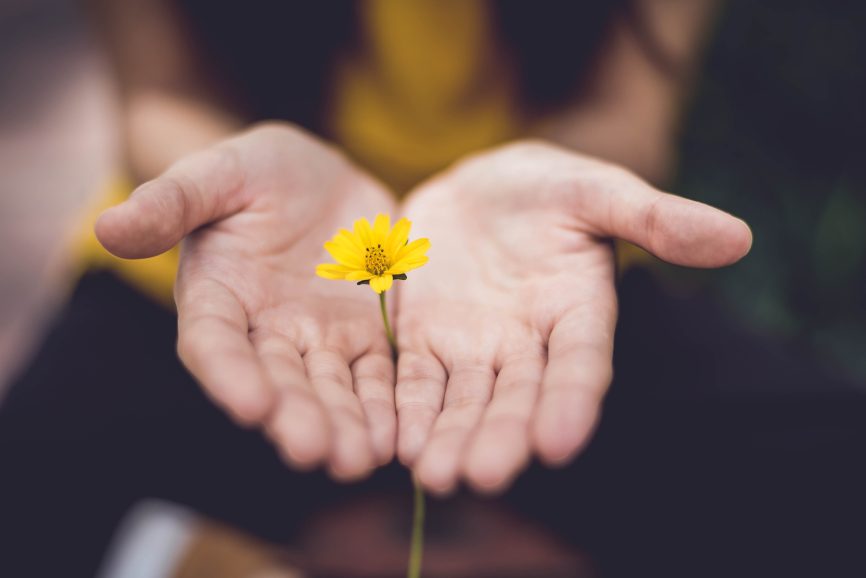Over recent weeks we watched the invasion of Ukraine by Russian forces. We watched the death toll from Covid continue to be shockingly high. We watched the stock market drop and listened to warnings of rising gas prices and inflationary concerns. Life is a lot right now, and it’s easy to become discouraged in the face of challenges coming at us from so many directions. We are in real trouble and need authentic leadership from all of us to see us through.
I’m concerned about the number of conversations I’m in with congregational and organizational leaders who are worn out, rundown and exhausted. None of us are OK. Expressing this concern to psychotherapist Isa Gucciardi reminded me that she’s created a course that helps us navigate the emotional stress we are experiencing. If you have a moment, check it out.
In these disorienting times, it’s hard to hold onto hope. Seeing a future that promotes peace, equity, sustainability and compassion seem like more of a stretch than it should be. But perhaps this disorienting “dark night” is readying us for the journey ahead. Maybe we are entering our Lenten reflection, our time of reevaluating how authentically we are living into Jesus’ teaching of the Kin-dom of God made possible through us.
As we wonder and wander together, I have hope. I see signs of profound growth in our movement. I see new imagination, inspiring courage, committed leadership, and honest confession. I have hope that our best days may yet be ahead. Here are four reasons why:
1. We’ve learned a lot about what it means to be the Church.
We’ve been through a great deal since the spring of 2020, learning along the way about who we are, how we are, and what we need to thrive. Perhaps we have learned something of the essential value of community, how we need one another, and thrive when we feel connected. Maybe we’ve come to question the meaning of our work, realizing we can no longer contribute to systems that ask us to compromise our integrity or waste our time in the endless pursuit of profit. Perhaps we’ve learned that slowing down grants peace, time for deep reflection, and a greater balance of being.
We’ve also learned that we can be the Church even without much of what we have used to define us. We don’t have to have buildings to gather, though they are nice when we need them. We don’t have to sing hymns, though it’s nice when we can. We had a clearer sense that BEING the Church is more about who we are rather than what we do.
To that end, we have learned that WE are the Church. Our pursuit of God and intention to live lives of deep compassion and love in community with others is the entire point of the Christian movement. In John 13:34, Jesus says, “A new command I give you: Love one another. As I have loved you, so you must love one another.” He continues, “By this everyone will know that you are my disciples, if you love one another” (13:35).
Love is the point. Kindness is everything. WE are the Church.

2. Creativity is on the rise.
Dara Khosrowshahi once famously said, “Desperation sometimes drives innovation.” For many of our congregations, this has been true. Covid focused us, honing our essential commitments – to do justice, love mercifully and walk humbly with God (Micah 6:8). We had to get creative about how to BE the Church in the midst of a global pandemic, fractious politics and radicalizing neighbors.
Author Jan Phillips in her book Creativity Unzipped observes about creativity:
“In many ways, the word ‘creativity’ has been in a cultural pigeonhole; its association with the fine arts has led people to believe they are not creative if they are not involved in painting, music, dance, poetry, or the visual arts. This categorization has undermined the brilliance of a large portion of the population. It has led to a society of individuals who feel life is happening to them, rather than through them. As they abdicate the power of their imagination and creativity, the fire in the belly turns to smoke, and people end up suffocating their own passions and leading diminished lives.
“The myth that only a select few are creative has contributed to a world of disparities. We all know the trouble we’re in. We all feel the daily news dragging down our spirits. And it’s hard to imagine solving problems if we can’t acknowledge our creative potential, if we hold onto the notion that ‘he’s got the whole world in his hands.’ When a politician says it is blasphemous to worry about climate change because it doesn’t acknowledge God’s will in the matter, one can’t help but wonder if that’s an attempt to exonerate humanity from responsibility.
“That’s the power of outmoded cultural myths. They don’t keep up with our evolutionary pace. We can forgive our ancestors for not knowing any better, but our grandchildren won’t forgive us for turning our backs on problems that need our creativity right now. We have a lot of power. Our choices and actions make all the difference. It is irresponsible today for anyone to think he or she is not creative. We impact and influence our culture with our stories, our consumer habits, our civic actions, our votes, our creations, and our media consumption. The world we live in is directly correlated with what we want to see and how we let our desires and demands be known.”
We create the kind of world that we imagine. When Jesus spoke of the Kin-dom of God, he was imagining, and by speaking it, creating an entirely different world shaped by radically different values than the Roman Empire. Today, his vision would be just as radical.
Creativity for the Common Good is the work of the Church. We are dreamers of a better world and a more just and generous future. If not us, then who?
3. We are curious about our future.
As a byproduct of our disorientation and rise of creativity, we are curious about our future rather than paralyzed by fear and inaction. Being curious means that we are open to learning, eager to connect with each other, generous in sharing our stories and observations, and ready to organize for local action. Theologian Thomas Barry observes that if we are to create a generative future, we must bring our collective material consumption into balance with earth to allow the healing and regeneration of the biosphere. Doing that requires that we:
- Realign our economic priorities from making money for rich people to ensuring that all people have access to an adequate and meaningful way of making a living for themselves and their families.
- Democratize human institutions, including our economic institutions, to route power and people and communities and replace a dominant culture of greed, consumption, materialism, and the love of money which cultures ground values of cooperation, caring, spirit, and the love of life.
- Awaken to the integral relationship between the material and spiritual aspects of our being to become fully human.
Rabbi Michael Lerner reminds us that, “energy always flows either towards hope, community, love, generosity, mutual recognition, and spiritual aliveness or it flows towards despair, cynicism, fear that there is not enough, paranoia about the intentions of others, and a desire to control.”
We stand at a threshold of evolutionary consequence. Our creativity – our expansive imagination in the face of existential threat Dash open is the possibility for manifesting a world truly shaped by the values taught by Jesus. Everything is at stake in our capacity to dream of a future and then create a world that brings heaven to earth. What more exciting time could you possibly be to be in the Church?
4. We can’t go back.
Institutional religion was already on the decline before Covid became a reality. We will never again see the “Age of Mainline Congregationalism” that once shaped our culture. Perhaps that’s a good thing. That path for seeking God was only good for some of us. As Robert P. Jones points out in his book, White Too Long, “Underneath the glossy, self-congratulatory histories that white Christian churches have written about themselves—which typically depict white Christians as exemplars of democratic principles and pillars of the community—is a thinly veiled, deeply troubling past. White Christian churches have not just been complacent or complicit in failing to address racism; rather, as the dominant cultural power in the U.S., they have been responsible for constructing and sustaining a project to protect white supremacy. This project has framed the entire American story.”
We’ve needed to reimagine the Church for a very long time. Now is our chance.
Recently I had a beautiful conversation with a colleague. Her mother had passed away, and she faced the overwhelming task of cleaning out her home. Weeks passed as she faced into the grief she knew this would bring and wrestled with the best way to approach the work.
By a stroke of providence, she connected with a woman who ran an estate sales company. In conversation with her, the woman said to her, “Go through the house and take only what you want. Take all the time you need. Then leave the rest to us. We will take care of it.”
As my colleague reflected on that moment, she said, “Her saying those words to me was the most wonderful act of grace. I felt such relief. It allowed me to grieve my mother without the burden of the rest.”
As I listened to her story, I thought about so many of us working in companies and faith communities forever changed by the pandemic. So much of our life wasn’t working. Companies were forcing too many of us into grey cubicles with mindless work. Our economies were consuming our planet. Faith communities faced unsustainable financial realities. We were killing ourselves with over-scheduled lives.
It’s as if this global disruption is saying to us, “It’s time for your old life to die and a new life to be born. Take a moment and look around. Take with you only what you think you will need. Leave everything else. From dust, to dust. All will be cared for.”
If you are a leader worried about how to help people through this time, perhaps offer a word about the peace that comes with letting go, taking only what you need. The pattern of life has always been life, death and life again. We will carry on, lighter and less burdened for the journey ahead. We will thrive.
If you are a leader in a faith community, perhaps consider that this is the “Great Rummage Sale” that our beloved Phyllis Tickle talked about so often. Your work is to let go of the trappings of the institutions that will not serve the movement going forward. Whatever you don’t want or need, leave behind. This is no time for nostalgia. Our world needs new experiences of Sacred awakening. Bring from our traditions only that which draws us into a deeper connection to God.
I love how Robert Fulghum puts it: “I believe that imagination is stronger than knowledge. That myth is more potent than history. That dreams are more powerful than facts. That hope always triumphs over experience. That laughter is the only cure for grief. And I believe that love is stronger than death.”
We have every reason to hope.

